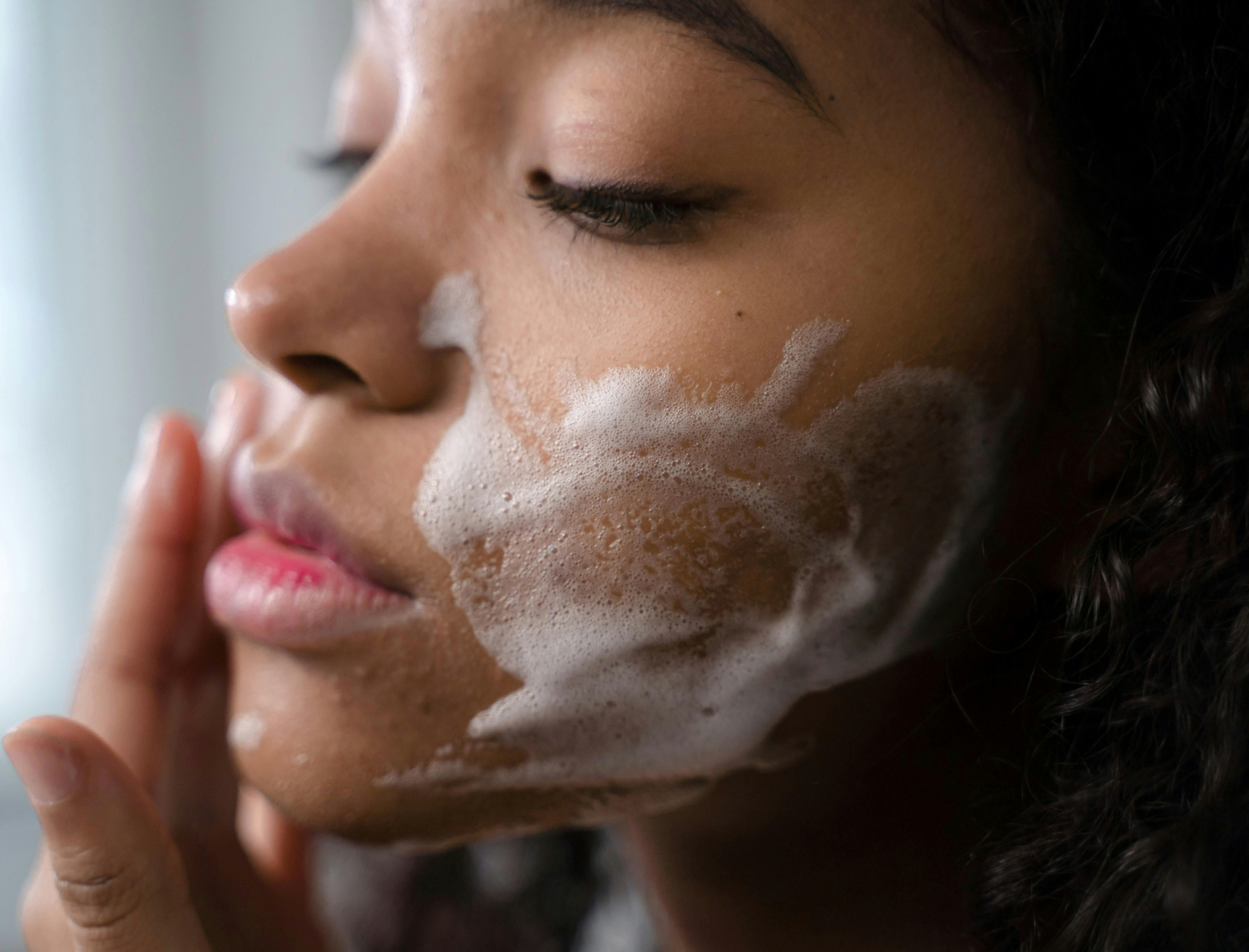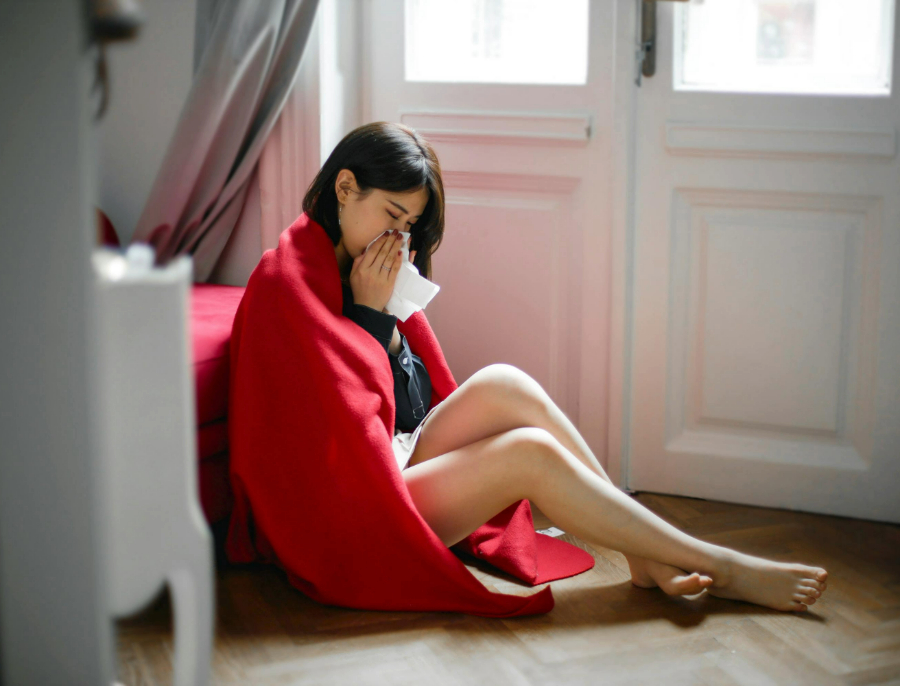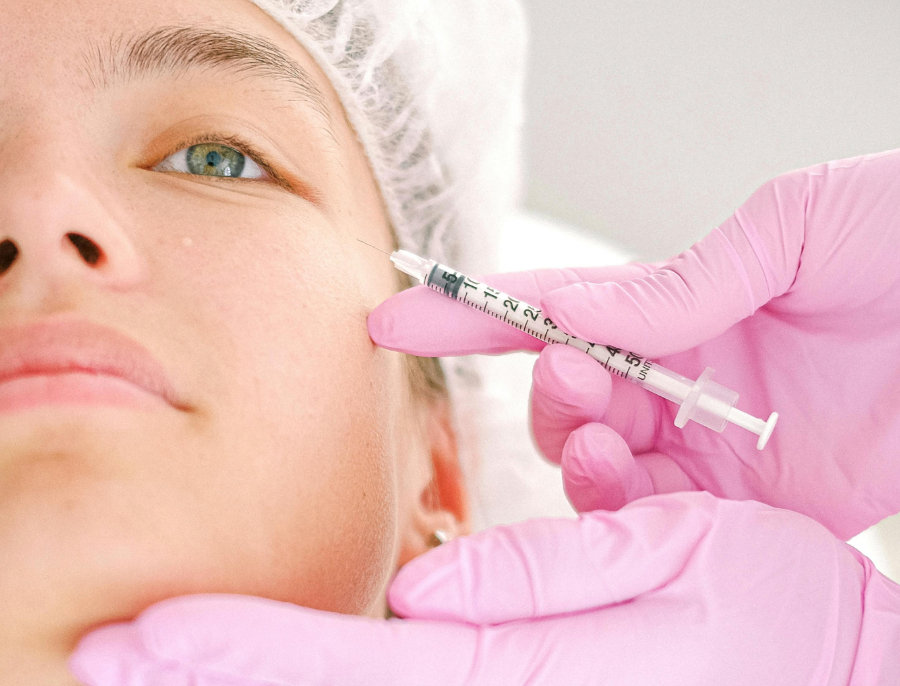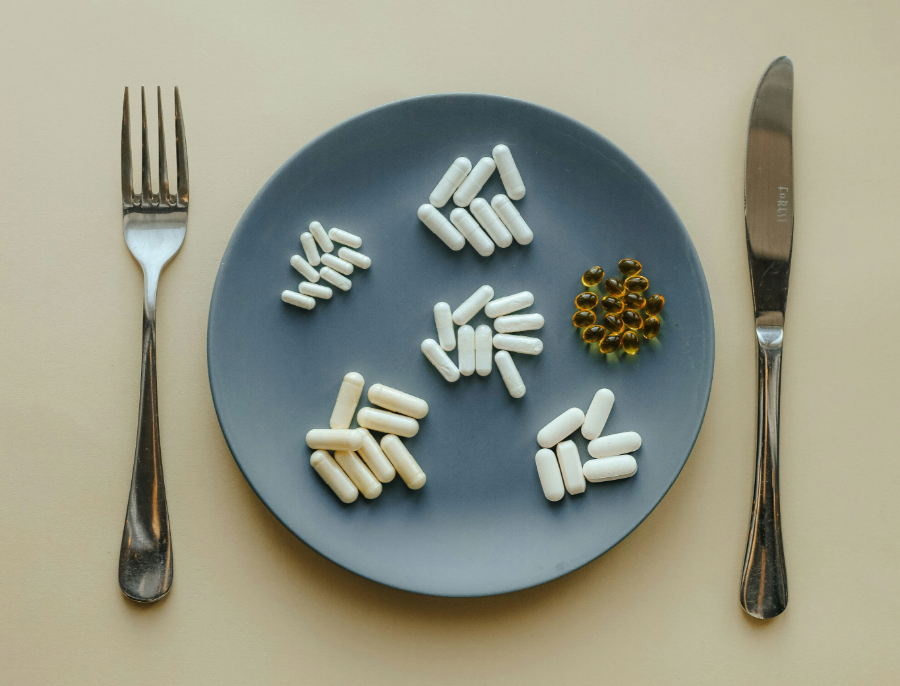Why Your ‘Clean’ Beauty Products Might Be Causing Breakouts (and More Acne Tips)

Women are constantly being sold skincare products—and it sometimes feels impossible to know what we should or shouldn’t buy. But fear not! Clearstem founders Danielle Gronich and Kayleigh Christiana dropped by Wellness Her Way to share some of their best tips for fighting acne. Gronich is a clinical esthetician and Christiana is an integrative health practitioner who both share a passion for a comprehensive, whole-body approach to healing.
Wellness Her Way host Gracie Norton asked them some of our biggest burning (well, hopefully not burning!) acne questions.
Acne Tips From ‘Wellness Her Way’
What is the one thing people should know about acne?
If you learn nothing else from Gronich and Christiana, learn to check all products for pore-clogging ingredients. Gronich says people are uneducated about the ingredients in our products.
Christiana explains that problematic ingredients exist in both natural and conventional products. Clean beauty often contains coconut oil, shea butter, and algae derivatives, while conventional products use ingredients like isopropyl myristate and isopropyl palmitate—names so difficult to pronounce that most people simply overlook them.
Christiana points out that fillers make up 95 percent of the product, while the active ingredients you’re actually buying it for represent just two percent of it. These fillers—approximately a hundred different agents—are what typically cause acne.
“Some are natural and seemingly friendly, like coconut oil,” notes Gronich. “You’re like, ‘Great. I cook with coconut oil. It must be great if I’m eating it. It’s natural.’” But Gronich warns, “natural means nothing.” Something that gets broken down easily by your stomach might not properly break down on your skin.
Clearstem’s website has a “pore clogging ingredients checker” that you can use to evaluate any product. Gronich notes that “non-comedogenic” labels can be misleading since this testing focuses on allergic reactions rather than pore-clogging potential, which explains why products with coconut oil and shea butter can still carry this label.
Should I be taking supplements?
Maybe—but they might be hiding acne triggers. “When I first met Danielle [Gronich], I was at the height of my biohacking phase,” says Christiana. “I was taking so many supplements. I was experimenting with colostrum for gut health at the time. I had no idea that colostrum is literally dairy. So if you break out from dairy, you will break out from colostrum.”
She advises evaluating all supplements,including protein powders, greens powders, pre-workouts, and other daily concoctions for excess amounts of B12, zinc, vitamin D and biotin.
“Zinc in high amounts can spike testosterone,” explains Gronich. “I see that all the time, cold and flu season, people start taking zinc, and everyone comes in with, like, mustache acne.”
Gronich adds that many people assume health supplements are universally beneficial, not realizing they’re often getting ten times the necessary dosage of, for example, B12, which can cause hormonal acne along the jawline.
Okay, so which supplements should you take for acne?
It depends on your needs. Here’s what the founders recommend:
- For PCOS: inositol (2,000 mg daily), which has produced significant improvements for members of their team with skin issues in just a week and a half
- For general skin health: getting zinc, vitamin D, and vitamin B12 through diet or a multivitamin. “Our favorite way to get zin in for healthy, glowing skin is through pumpkin seed oil,” Christiana says.
- For digestion: using digestive enzymes, apple cider vinegar, or hot water with lemon during meals, plus probiotics with fiber-rich meals
“I know I’m supposed to exfoliate—but how?”
Gronich recommends a varied toolkit for exfoliation. She suggests using a physical scrub that acts as a polish to remove dead skin without stripping your barrier.
How to work an exfoliating scrub into your skincare routine is up to you. You can use a scrub for just 10 seconds a few times a week or for a full minute once a week. The key, Gronich emphasizes, is being gentle and consistent rather than overdoing it.
You should use a physical exfoliant—“like a gentle scrub,” Gronich specifies—and an alpha hydroxy acid. You may have used salicylic acid, which is commonly prescribed and great for oily skin, but have you ever tried mandelic acid? That’s the one that the Clearstem founders are really going wild for right now.
Mandelic acid works by physically unclogging the congestion in your pores. It’s effective against all types of acne, says Gronich, explaining, “You just leave it alone on your skin for about 15 minutes, and then you go and add your next step.”
“Everyone’s got a different sweet spot,” Gronich says. The right amount of exfoliation depends on your skin type and goals, stopping short of where your barrier becomes dry.
What do most doctors get wrong about acne?
Gronich and Christiana agree that not nearly enough dermatologists or functional medicine doctors use bloodwork to make their recommendations. “I’m the biggest fan of blood work,” says Christiana. “Anytime people are like, I don’t know where to start, I’m like, go get your lab testing. Because until you have data based off of your own body, how are you going to know where to start? It’s literally a map. It’s like a guide.”
She points out that not all functional medicine doctors understand acne well. “A lot of naturopaths and functional medicine people will put people on way too high amounts of B12. And they’ll think, ‘Oh, your skin’s breaking out because you’re purging, you’re detoxing.’ That may or may not be true. Sometimes it’s just too much B12.”
What does a person with great skin do on an average day?
Hydrate:
Gronich recommends drinking at least half a liter of water before any caffeine, whether you choose matcha or coffee.
Eat veggies:
With the help of an endocrinologist, Christiana says she eliminated nearly everything from her diet and included two servings of cooked vegetables with every meal. Later, she was able to integrate more foods back in, but the veggies definitely stuck. “I have never felt better. So now I have greens for breakfast and a little bit of sausage or bacon. It’s the best.”
Get protein and exercise, in whichever order you prefer:
Christiana advises following your body’s preferences rather than forcing yourself into someone else’s routine. If you need food before working out, eat something—don’t fast just because others recommend it. The goal is getting about 30 grams of protein before 11 a.m., regardless of your exercise timing.
Wash your face—but not with hot water:
“Cool and lukewarm water, have at it. Do that all you want,” says Gronich. “Do the face dunking and ice, all the things. But hot water, avoid at all costs. Especially when it’s beading on your face. Hot water causes damage to the skin.”
According to Gronich, hot water prevents healing of acne, scars, and wrinkles, making all these conditions worse. “Your acne will become more aggressive and your wrinkles will actually look deeper,” she says.
The founders have tested this theory by having clients stop washing with hot water and photographing their crow’s feet before and after. Christiana reports the wrinkles typically reduce by half—“It’s like Botox.”
Gronich also notes that people often over-cleanse because their pores are visibly congested from using products with pore-clogging ingredients. Once these ingredients are eliminated, skin behaves much better. “You wake up in the morning, your skin is fine. You splash off in your T-zone if you need it, and then you go about your day. And you want to splash off in the morning instead of doing a deep cleanse because that’s how you preserve your barrier. And that’s what’s going to make you age better. Because when you dry your skin out in the morning, you get UV damage faster. And that’s what causes most aging,” Gronich says.
In the evening, use lukewarm water and an effective, yet gentle cleanser to remove the day’s accumulation of sweat, pollution, and products.
Okay, that’s a lot of info. But the key takeaways are straightforward—check the ingredients in everything, be aware of your diet and supplements, and be gentle with your face.
Check out the full episode for tips on treating acne through nutrition. For more info on how to take care of you, listen to Wellness Her Way.




















Leave a Reply